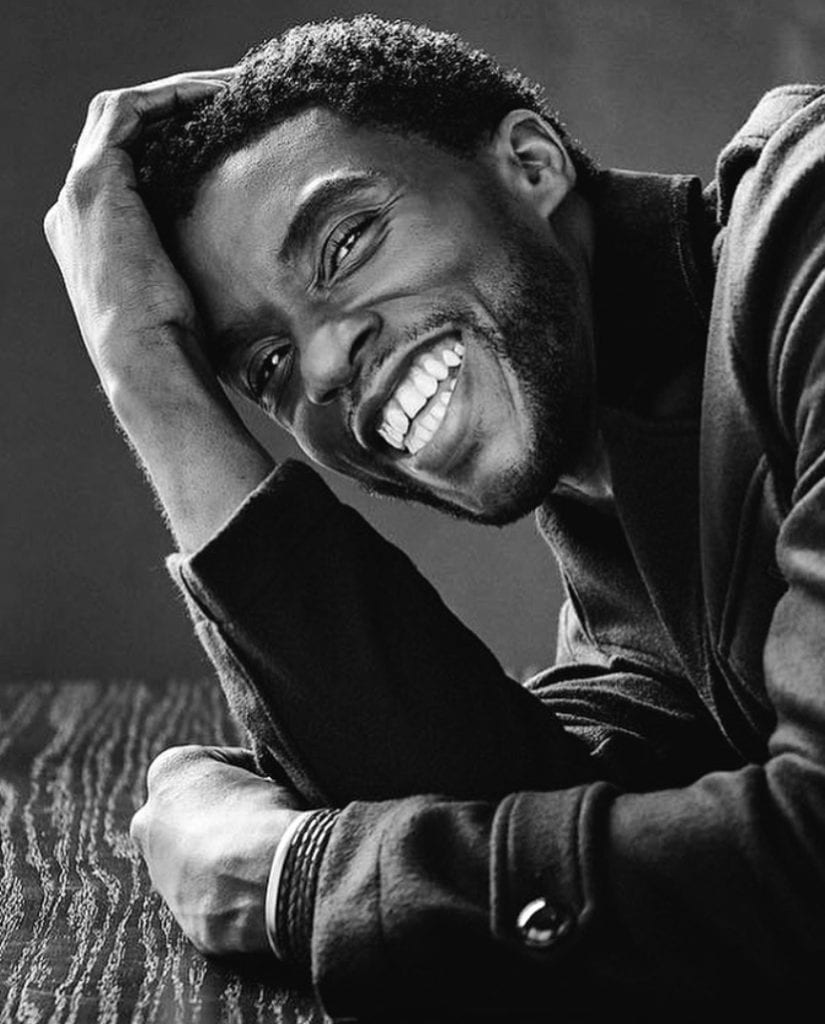
Many current events this year were unprecedented, but one that came as a downright shock was the death of Chadwick Boseman. On Aug. 28, the 43-year-old actor lost his battle with colon cancer, leaving the world with one less superhero. He was most greatly known for his portrayal of King T’Challa, aka “Black Panther,” but Boseman had an impressive filmography beyond the Marvel Cinematic Universe, landing roles of black American icons like Jackie Robinson, Thurgood Marshall and James Brown.
Upon the announcement of his passing, many people chose to honor him through social media and also by watching or rewatching some of his films. The first time I saw him was as T’Challa. I didn’t grow up reading the comics as many Marvel fans have, so when Black Panther was introduced in Captain America: Civil War, I was in complete awe of the character. I mean, with his finesse, his accent, and the sleek Wakandan technology, how could you not? He was brought to life by Boseman, and Black Panther quickly became one of the most anticipated Marvel movies of all time.
Being quite the private celebrity in the first place, he did not share his diagnosis back in 2016. So, while he was shooting two Avengers movies and Black Panther, he was undergoing treatment, including several surgeries and bouts of chemotherapy. After rewatching Black Panther, there was just an automatic sense of respect I felt for an actor who could push through their personal, physical pain to carry out training for a movie, execute difficult scenes, and continue to present a brave face to the world. In my eyes, that sort of strength makes Boseman a legend. The following quote from Boseman, when accepting an award at the 2019 SAG Awards, shows why he so greatly exemplified this strength:
“I feel that I’m living my purpose. But the thing about purpose is that it unfolds to you more and more everyday. You could be living in what was revealed to you at a particular time, and then you might get stagnated because there’s more that you’re supposed to do. It doesn’t just stop as you do one thing. I think it’s [about] being open to what you’re supposed to do at this moment and not getting stuck in the past. Purpose is not related to career. … It’s related to what God put inside you that you’re supposed to give to the world.”
I also took this time to watch Get On Up (2014) after hearing great reviews about Boseman’s performance, and I was eager to learn more about James Brown and his music. Get On Up takes you through Brown’s life, weaving in and out of different timelines to show how each ultimately influenced him. I enjoyed the fact that the film was written for Brown to break the fourth wall and interact with the audience, displaying the charisma that no doubt enchanted his fans. What really surprised me was how well Boseman got down the godfather of soul’s dance moves, but he revealed in an interview that he worked with a choreographer five to eight hours a day. Boseman was given prosthetics to look uncannily like Brown in his later years and tailored his voice to sound like him.
Boseman’s dedication to craft was admirable, and it’s saddening to imagine the film industry without him, especially when he defined it as his purpose. May he rest in power, may his courage serve as an inspiration, and may his words serve as ingenious advice for us:
“Whatever you choose for a career path, remember the struggles along the way are only meant to shape you for your purpose. As you commence to your paths, press on with pride, and press on with purpose.”

